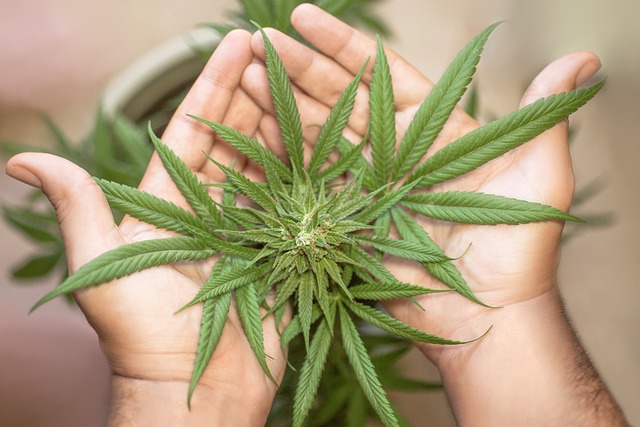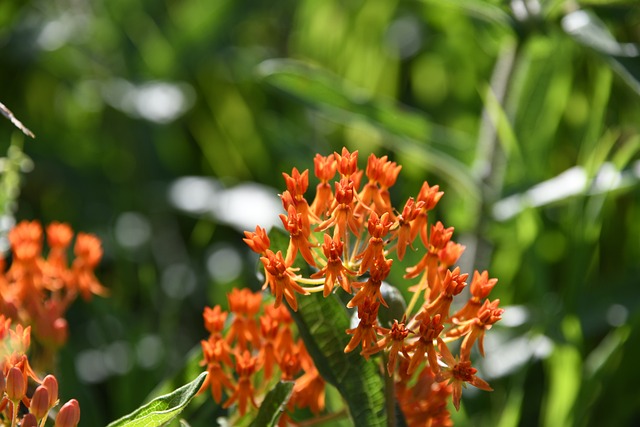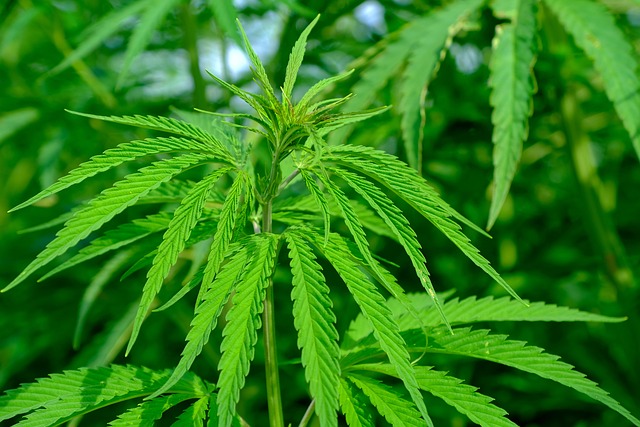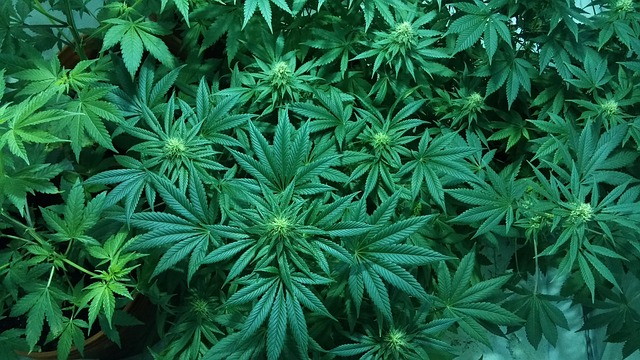Delta-9-tetrahydrocannabinolic acid (THCA), a non-psychoactive cannabinoid found in Cannabis sativa, is gaining attention in the UK for its potential health benefits and legal status. THCA IndaCloud THCa hemp, which is abundant in THCA flowers legally available in the UK, is under research for its anti-inflammatory, neuroprotective, and anti-nausea properties, potentially aiding conditions like arthritis, multiple sclerosis, and chemotherapy-induced nausea. Its interaction with the endocannabinoid system may promote overall well-being without inducing a psychoactive ‘high.’ In the UK, THCA is legally permissible under specific conditions, including containing no more than trace amounts of THC. This distinction allows consumers to access THCA’s benefits within a regulated framework, aligning with the country’s evolving medicinal cannabis regulations. THCA is also recognized for its pain-relieving qualities, making it an attractive, legal alternative for those in the UK seeking natural relief from inflammation and pain without the mind-altering effects of THC. Its growing popularity is reflected in its inclusion in various wellness products, adhering to strict UK regulations and catering to a diverse range of users.
discover the myriad benefits of Indacloud thca flower, a non-psychoactive compound found in the cannabis plant that’s gaining attention for its potential health advantages. As we delve into its multifaceted effects, from anti-inflammatory properties to neuroprotective qualities, it’s clear why understanding THCA and its legal status in the UK is paramount for those exploring alternative wellness options. This article will navigate the nuanced differences between THCA and its psychoactive counterpart, THC, and offer insights into how THCA flower can be a natural aid for pain relief, anxiety management, digestive issues, and more, all within the confines of UK law. Join us as we explore the emerging science behind this cannabinoid, its legalities across different UK counties, and how it fits into a balanced wellness routine.
- THCA Flower Benefits Unveiled: A Look at Its Potential Health Advantages
- Understanding THCA: The Precursor to THC and Its Legal Status in the UK
- THCA vs. THC: Differences in Effects and Uses
- Anti-Inflammatory Properties of THCA Flower: A Natural Solution for Pain Relief
THCA Flower Benefits Unveiled: A Look at Its Potential Health Advantages

delta-9-tetrahydrocannabinolic acid (THCA) is a non-psychoactive cannabinoid found in the Cannabis sativa plant, which has garnered attention for its potential health benefits. As research continues to evolve, studies suggest that THCA may offer various therapeutic properties without the psychoactive effects associated with its decarboxylated form, delta-9-tetrahydrocannabinol (THC). In the UK, where the legal landscape surrounding cannabis and its derivatives is distinct from that of other countries, THCA flowers are being explored for their wellness benefits. These flowers contain high levels of THCA and are legally available in various forms under UK regulations, providing an alternative to more traditional wellness products.
The potential health advantages of THCA flowers are numerous. Preliminary research indicates that THCA may have anti-inflammatory, neuroprotective, and anti-nausea effects, which could be beneficial for conditions such as arthritis, multiple sclerosis, and chemotherapy-induced nausea. Additionally, THCA’s interaction with the body’s endocannabinoid system suggests it may contribute to homeostasis and overall well-being. In the UK, where there is a growing market for cannabinoid products, THCA flowers are gaining traction among consumers looking for natural alternatives to manage various health issues. As with any supplement or medication, it is important for individuals to consult with healthcare professionals before incorporating THCA flowers into their wellness routine, ensuring that any use aligns with the legal framework established by UK law.
Understanding THCA: The Precursor to THC and Its Legal Status in the UK

Though often overshadowed by its psychoactive counterpart, Delta-9-tetrahydrocannabinol (THC), Tetrahydrocannabinolic Acid A (THCA) is garnering attention for its potential wellness benefits and as a non-intoxicating compound. THCA is the raw form of cannabis from which THC is derived when exposed to heat or light, typically through combustion or decarboxylation. This precursor to THC has been found to possess various properties that are being studied for their therapeutic potential, including anti-inflammatory and neuroprotective effects.
In the UK, the legal status of THCA-rich products is nuanced and evolves with regulatory updates. Cannabis-derived compounds like THCA fall under the Misuse of Drugs Act 1971, which classifies them as controlled substances. However, derivatives of cannabis are legal provided they contain no more than trace amounts (below 0.2%) of THC and are sold as food supplements or for research purposes. The UK’s Home Office has clarified that the mere presence of cannabinoids alone does not mean a product is illegal; rather, it is the concentration of THC that determines legality. This distinction allows consumers in UK countries to explore THCA flower benefits within the confines of the law, as long as they adhere to the stringent regulations governing such products.
THCA vs. THC: Differences in Effects and Uses

Delta-9-tetrahydrocannabinolic acid (THCA) and delta-9-tetrahydrocannabinol (THC) are two cannabinoids found in the Cannabis sativa plant, each with distinct properties and effects. THCA is the non-psychoactive precursor to THC and is present in raw or fresh cannabis flowers. In contrast, THC is the psychoactive form that is typically associated with the ‘high’ experienced after smoking or vaporizing cannabis.
In terms of effects, THCA is gaining attention for its potential therapeutic benefits without the psychoactive side effects commonly associated with THC. Research suggests that THCA may offer anti-inflammatory, anti-nausea, anti-emetic, and analgesic properties, making it a subject of interest in various health applications. It’s worth noting that while THCA is legal in the UK under certain conditions as part of the UK’s medicinal cannabis regulations, the more commonly known THC remains a controlled substance, reflecting the distinction between their legal statuses. Users often convert THCA to THC through decarboxylation—a process involving heat, which activates the psychoactive properties of THC. However, THCA’s potential benefits are explored in wellness and healthcare settings, where it is used for its therapeutic effects without the ‘high.’ As such, THCA flower benefits are a focus of ongoing research and interest within the legal framework established for medicinal cannabis products in UK countries.
Anti-Inflammatory Properties of THCA Flower: A Natural Solution for Pain Relief

Delta-9-tetrahydrocannabinolic acid (THCA) is a non-psychoactive cannabinoid found naturally in hemp and cannabis plants. While it’s the precursor to the more well-known psychoactive compound delta-9-THC, THCA possesses its own unique therapeutic properties, particularly for pain relief. Research indicates that THCA exhibits potent anti-inflammatory effects, which can be beneficial for individuals experiencing inflammation-related pain. This natural compound interacts with the body’s endocannabinoid system, a complex cell-signaling system that helps maintain physiological and homeostatic balance. In the UK, where regulations on cannabis derivatives have become more clarified, THCA is gaining recognition as a legal alternative for those seeking natural pain relief without the psychoactive effects of delta-9-THC. The anti-inflammatory properties of THCA flower are not only of interest to those in chronic pain but also to athletes and individuals engaged in physical activities looking for a safe method to manage recovery from soreness and inflammation. As such, THCA is increasingly being incorporated into various wellness products, from topical creams to capsules, providing a natural solution for pain relief that aligns with legal standards in UK countries. Users report its effectiveness without the high, making it an attractive option for those sensitive to psychoactive substances or subject to drug testing.
THCA, or tetrahydrocannabinolic acid, has emerged as a subject of growing interest within the health and wellness sectors. Its potential benefits, which range from anti-inflammatory properties to pain relief, have been highlighted in this article. While THCA is the precursor to THC and shares some similarities, it distinctly differs in its effects and uses, offering a unique set of advantages that are being explored for their health implications. The legal status of THCA flower in UK countries allows for research and the development of products containing this compound, paving the way for innovative applications in wellness regimens. As our understanding of THCA continues to evolve, it becomes clear that this naturally occurring cannabinoid holds promise for those seeking natural alternatives for health concerns. This article has underscored the potential of THCA flower benefits, setting a foundation for further exploration and potential integration into complementary therapies within the legal framework established in UK countries.
